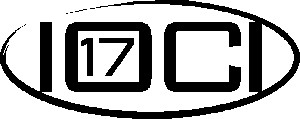|
23
|
PF
|
3-501.17 (A-B) (E-G): (A)Except when PACKAGING FOOD using a REDUCED OXYGEN PACKAGING method as specified under § 3-502.12, and except as specified in ¶¶ (E) and (F) of this section, refrigerated, READY-TO -EAT, TIME/TEMPERATURE CONTROL FOR SAFETY FOOD prepared and held in a FOOD ESTABLISHMENT for more than 24 hours shall be clearly marked to indicate the date or day by which the FOOD shall be consumed on the PREMISES, sold, or discarded when held at a temperature of 5ºC (41ºF) or less for a maximum of 7 days. The day of preparation shall be counted as Day 1. (B) Except as specified in ¶¶ (E) - (G) of this section, refrigerated, READY-TO-EAT TIME/TEMPERATURE CONTROL FOR SAFETY FOOD prepared and PACKAGED by a FOOD PROCESSING PLANT shall be clearly marked, at the time the original container is opened in a FOOD ESTABLISHMENT and if the FOOD is held for more than 24 hours, to indicate the date or day by which the FOOD shall be consumed on the PREMISES, sold, or discarded, based on the temperature and time combinations specified in ¶ (A) of this section and: (1) The day the original container is opened in the FOOD ESTABLISHMENT shall be counted as Day 1; and (2) The day or date marked by the FOOD ESTABLISHMENT may not exceed a manufacturer’s use-by date if the manufacturer determined the use-by date based on FOOD safety. (E) Paragraphs (A) and (B) of this section do not apply to individual meal portions served or rePACKAGED for sale from a bulk container upon a consumer’s request. (F) Paragraphs (A) and (B) of this section do not apply to SHELLSTOCK. (G) Paragraph (B) of this section does not apply to the following FOODS prepared and PACKAGED by a FOOD PROCESSING PLANT inspected by a REGULATORY AUTHORITY:
(1) Deli salads, such as ham salad, seafood salad, chicken salad, egg salad, pasta salad, potato salad, and macaroni salad, manufactured in accordance with 21 CFR 110 Current good manufacturing practice in manufacturing, packing, or holding human food; (2) Hard cheeses containing not more than 39% moisture as defined in 21 CFR 133 Cheeses and related cheese products, such as cheddar, gruyere, parmesan and reggiano, and romano; (3) Semi-soft cheeses containing more than 39% moisture, but not more than 50% moisture, as defined in 21 CFR 133 cheeses and related cheese products, such as blue, edam, gorgonzola, gouda, and monterey jack; (4) Cultured dairy products as defined in 21 CFR 131 Milk and cream, such as yogurt, sour cream, and buttermilk; (5) Preserved FISH products, such as pickled herring and dried or salted cod, and other acidified FISH products defined in 21 CFR 114 Acidified foods; (6) Shelf stable, dry fermented sausages, such as pepperoni and Genoa; and (7) Shelf stable salt-cured products such as prosciutto and Parma (ham).
Observed prepared food stored in the walk-in cooler not labeled with the date of preparation. Label all prepared foods with the date of preparation.
-
Repeat (Correct By: Dec 22, 2023)
|
